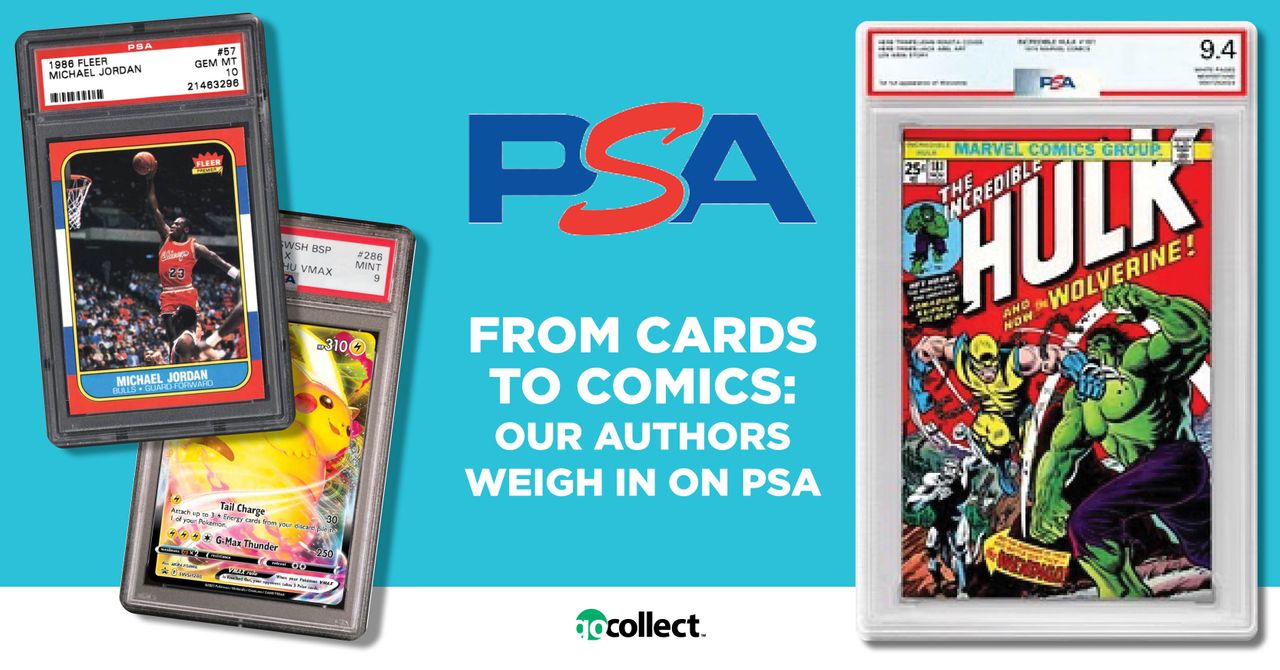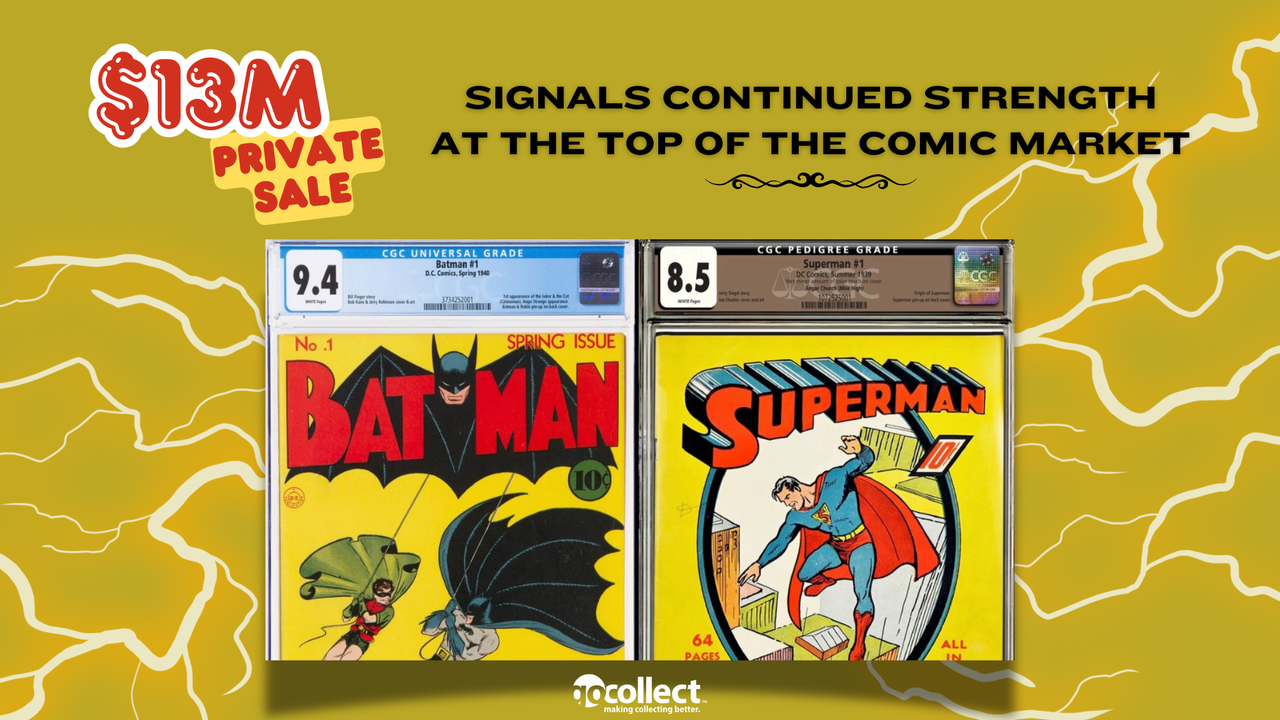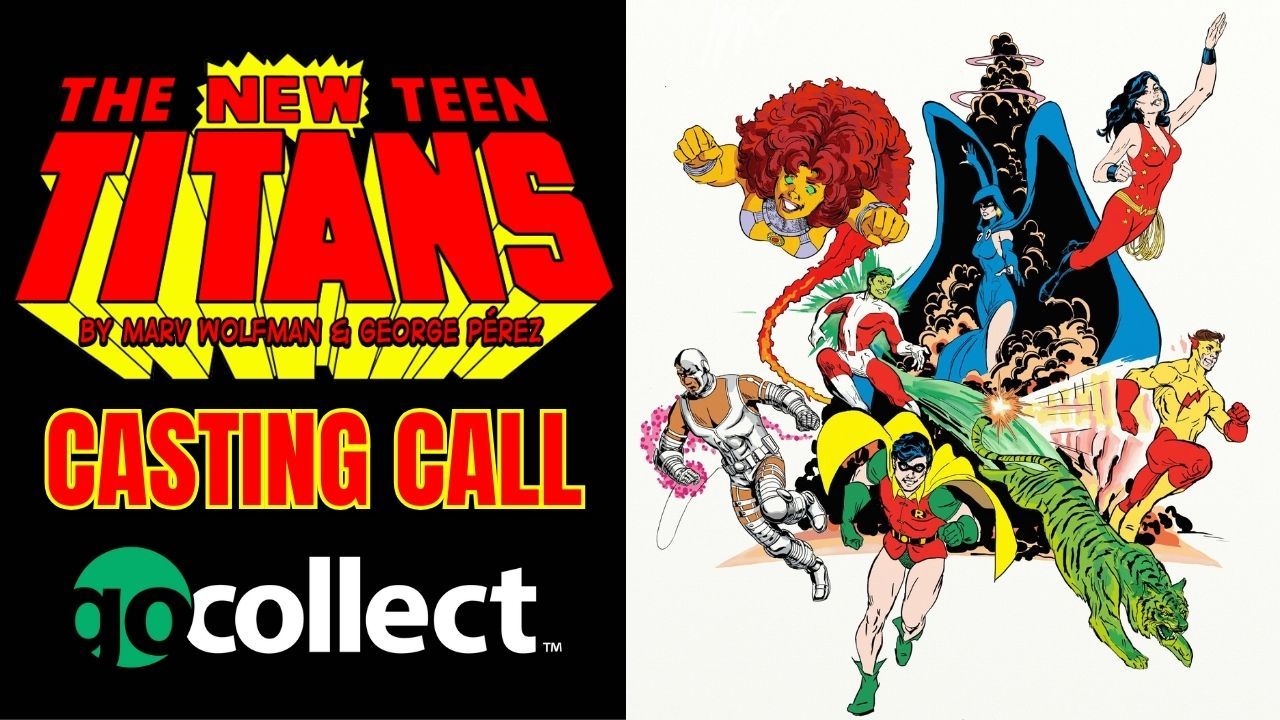It’s becoming clear that the world of collectible comics and magazines will never stop evolving.
Once the realm of niche experts and independent grading services, it seems that very big players have taken notice and interest. The influence of established names in the sports memorabilia grading scene is starting to seep into this new territory. With companies that have long dominated the sports and trading card space stepping into comics and magazines, it begs the questions:
What will this mean for collectors? Will there be new ways to measure the value of your comic books, and will we see a shift in how collectors are tracking market trends? The next few months may reveal some surprising developments in the world of comic book investment and appraisal.
I reached out to our editorial staff for their thoughts on PSA's arrival, and I asked them to completely unload.
Douglas Ohlandt:
I think the big question regarding PSA entering into graded comics and magazines is whether or not they'll be able to make a dent in CGC's stranglehold on the graded comics market. This will require time and patience as it's a difficult task to break a near monopoly overnight. PSA will need to gain comic collectors' trust and this will require a multi-tiered approach. Packaging is obviously important. The slab will have to have a nice sleek look that allows the comic to show well while also having the toughness to protect the comic.
One issue that has already arisen with their early prototypes is the size of the slab. They definitely need to work on that. No one wants a product that is too large and prevents comics from fitting into already available boxes. Additionally, dealers want to display as many slabs as possible, and ones that are too large will prevent them from doing so.
PSA will also need to have grading that's spot on. Comic collectors are very picky, selective, and subjective about what defects play into a particular grade, so they'll be unlikely to please everyone all the time. But if collectors see that the grading is done with consistency and care, it will go a long way toward gaining their trust.
Transparency is also key. If there's a problem, PSA needs to own up to it. We're seeing issues like "bananagate" and CGC's reaction (or lack thereof) causing collectors to lose their trust in the company. Yet they continue to send their books to CGC for grading. The simple reason for that is price. Not the price that is paid for the product or service, but the price they can get when they sell a comic. Ultimately, that will be the deciding factor.
CGC dominates the hobby because comics in their slabs command a higher selling price than those in the slabs of their competitors. If PSA is able to gain collectors' trust and capitalize on CGC's recent mistakes, it will be a good first year for them. Time will tell if their graded comics are able to command as high a price as CGC's. Fortunately, thanks to their revenue from graded cards, PSA has the time to get it right and the ability to heavily market their product and service from the get-go. Just the potential for competition in the graded comic market space is enough to get me excited to see what the future holds. Competition makes everyone better, and in a hobby that has tended to look monopolistic for decades, from distribution to grading, it could be a pleasant change.
Chris Severs:
PSA entering comic book grading is exciting, yet not without concerns for collectors. As the standard-bearer in card grading, their entry could help raise awareness and add credibility or new services & features to the comic book grading market, where increasing competition often puts downward pressure on pricing while increasing consumer features (CGC has been raising their prices lately too.) PSA’s reputation for consistency may also build trust for newer collectors and investors who may have held back sending their assets in for grading previously, or add marketing value into the ecosystem helping calm those fears the industry is slowing as new modern, digital options are entering the space.
However, the shift could add complexity or confusion as collectors face multiple grading options, more so as each might have some of their own standards. Varying values or features between CGC and PSA (in addition to other players already in the space like CBCS, PGX, etc.) might add more fragmentation in the market. The risk is we could find ourselves in a more complicated environment, where the nuances of grading standards, sometimes subtle, sometimes significant, become harder to navigate. Look at grading cases as one example - they're not all the same in quality...will all grading staff across brands work from the exact same checklist, or what about differences in backgrounds, even their mood the day your book is graded - could that vary across brands? What about personal loyalties to grading brands?
It's an exciting time that I feel would help more than hurt the space, but we'll need to keep our eyes sharp on how grading valuations evolve. I think it's good for consumers though, as competition increases. Not everyone likes to grade either, with many preferring to hold on their raw copies, avoid fees, have no intention of reselling and so forth. So for those who do prefer the grading route it does provide a bit more in terms of options or preferences to select from.
Don Yu:
As I mentioned in this blog, comic book grading during the past few years has essentially become a monopoly. There was a time when CBCS was providing some competition, but when it comes down to it, comics that are graded by CGC have more value on the secondary market. But just when it seemed like CGC had solidified its monopoly on the comic book grading business, CGC experienced a slew of bad press including a slabbing scandal in early 2024 that affected at least several hundred comics. I think PSA may have smelled some blood in the water when they announced in 2024 they would begin grading comics. PSA is no CBCS; PSA is the CGC of sports and trading card grading. If PSA can capture the business of collectors who collect both comics and sports and trading cards, CGC will have some real competition on its hands. I think that competition will ultimately benefit collectors
Joseph Overaitis:
The nature of comic book collecting has been evolving. Gone are the days when a once-a-year price guide was the only reference that comic book collectors and investors followed. Many enter the arena but only the best of the best are victorious in this every changing market. I believes that is what will make this hobby stronger.
In the past comic book collecting has seen this type of competition few and far between when it came to grading. That is changing with PSA entering the comic book grading landscape. An industry leader in grading other collectibles, PSA has now realized the opportunity that exists in the comic book market. CGC has long dominated the landscape and has established itself as the king of comic book grading but with the introduction of PSA in the market will that remain the same?
Rather than trying to mimic CGC success we may finally see true innovation and competition between these established entities. Will CGC remain king or will PSA defeat the current industry leader and be the new standard bearer when it comes to dominating the comic book grading market? In the end only one thing that is certain to be true; collectors and investors will be the true winners when they see lower prices and higher standards that they expect when it comes to grading their prized possessions.
Joshua Robbins:
PSA’s involvement in comic book grading is likely to be a positive development for the industry. As one of the most trusted names in sports card grading, PSA brings decades of experience in maintaining consistency, reliability, and transparency in their grading process. Their established reputation for accuracy and security could offer comic book collectors and investors more confidence in the quality of their books’ grading.
However, reviews so far have been mixed, based solely on the label itself. And when I say mixed, I don't honestly see a lot of people speaking positively on it.
The reasoning for the label they're using makes sense, on a branding standpoint, but that likely is not translating to comic book fans. A big problem that I see with comic books and the rest of collectibles, is that there isn't as much crossover as the industry would hope. The angle in which PSA could win is if they focus their marketing on capturing magazine fans, who are more apt to recognize their efforts given in the sports collectibles world. For example, collectors of Sports Illustrated, Slam, etc.
On the comic book side, it would be interesting to see if PSA will learn from these critiques and at least thinks about redesigning the comic label.
Wymon Stanlick:
PSA’s entry into the comic and magazine grading world is no doubt an important development for the hobby, and there’s a lot to be optimistic about. With their established reputation for precision and consistency in other collectibles, PSA brings a level of professionalism that could help set new standards for comic grading. They’re bringing in dedicated comic graders, which is crucial—because now the comparison to their sports card grading really doesn’t hold weight here.
For collectors, this means something actually new. A grading system and product with the potential for direct market comparisons! As the comic book market continues to grow, a trusted brand like PSA stepping in will likely provide greater transparency, which benefits everyone from casual collectors to serious investors.
That said, there are still some considerations that come with PSA’s involvement. While their formidable cases add a layer of protection and value that graded comics have been seeking, there is talk that their prominence might bolster even more of a market-driven mindset. Will comics simply become even more about numbers and resale value? How much further will this shift the way comics are viewed and traded?
Whatever the answer to that is, there are no such questions with magazines. In fact, I'm making a prediction that PSA's magazine division will outstrip more of their competitors' share right out of the gate than it does with comics. In fact, it will likely overtake it in surprising time. PSA is ripe for finally taking collectible magazines into mainstream conversations for two simple reasons. Firstly, they have their own magazine. Secondly, they have massive inroads with the sports world - and sports magazines take up a large portion of graded magazines.
Overall, I don't believe these shifts are inherently bad—it’s just something collectors will need to watch closely as PSA’s influence grows. PSA’s entry into these grading spaces has the potential to elevate the industry, but it’s important to stay diligent and mindful of how the grading process might evolve as they continue to build out their system for comics and magazines.
And remember, one of the reasons they pushed back the release of their launch is because they are actively listening to and working with the community. That alone is a welcomed reprieve.





